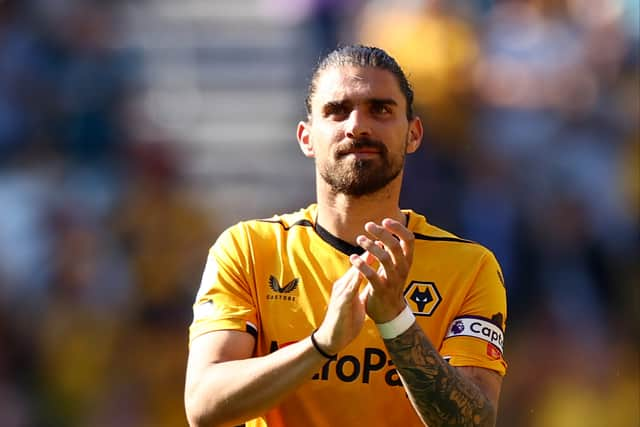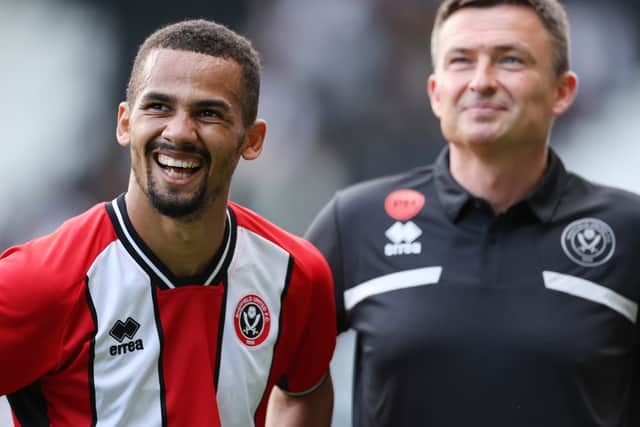Are Wolves and Sheffield United doomed from the start? Premier League duo face brutal uphill battle
and live on Freeview channel 276
It’s usually much harder than people think to figure out which teams are going to get relegated at the start of the Premier League season. Plenty of underdogs have had more bite than anticipated, and plenty of seemingly solid teams have crumbled. Predicting the final table in August is typically a mug’s game – but that may be less true this time, because both Wolves and Sheffield United are doing everything possible to disintegrate before a ball has even been kicked.
These are dangerous times for Wolves. Having spent much of the summer threatening to leave the club over FFP issues and the straightjacket they imposed on his transfer dealings, Julen Lopetegui has now departed at the eleventh hour. Wolves went into last season looking pretty dire and were rock bottom at Christmas – that Lopetegui kept them comfortably clear of the drop zone in 2022/23 was essentially an act of footballing necromancy.
Advertisement
Hide AdAdvertisement
Hide Ad

Now they have to shred the playbook with just five days to go before their opening game, away to Manchester United on Monday. In any case, they’ll be going in without talismanic midfielders Rúben Neves and João Moutinho and without anything resembling a proven goalscorer. The club who scored fewer goals than any other in the top tier last summer go into the new campaign without a single fresh attacking recruit.
The only business they have done is signing veteran full-back Matt Doherty on a free, defensive midfielder Boubacar Traoré for £11m and finalising the permanent signing of Matheus Cunha from Atlético Madrid. Between the transfer fee and the loan costs last campaign, Wolves are believed to have spent a total of around €70m on a Brazilian forward who scored a total of two goals in 37 matches last season.
Meanwhile, Fábio Silva, the Portuguese striker they signed for a starting fee of £35m three years ago, returns from a season spent on loan in Belgium and the Netherlands, where he at least scored 16 goals in 51 total games. He will likely be the main goal threat this season, and Wolves will have to hope he has found a level that was conspicuously absent when he first arrived in the Black Country.
Wolves have spent an enormous amount of money on some extremely underwhelming players over the last few years, many of them clients of Jorge Mendes. Their transfer policy has left them with a paper thin squad, a dearth of talent and an FFP burden that prevents them from spending enough money to rectify the problem. No wonder Lopetegui left.
Advertisement
Hide AdAdvertisement
Hide AdNewly-promoted Sheffield United also come into the new Premier League season with financial constraints. So poor was their fiscal state last season that they were placed under a transfer embargo in January (since lifted) and there were reports, denied by the club, that they weren’t properly maintaining the Bramall Lane pitch to cut costs. All this is despite being owned by former Saudi Arabian sports minister Prince Abdullah bin Musaid Al Saud, a member of the kingdom’s royal family – he is now hoping to sell the club, a process which has not progressed in recent months.
Those book-balancing concerns have bitten the Blades in the transfer window, as well. Their main goal threat in the Championship, Iliman Ndiaye, has been sold to Marseille. It now appears that their superlative midfielder Sander Berge will also be on his way out, to presumed relegation rivals Burnley – an understandably rare instance of a club selling perhaps their best player to a team in immediate competition with them. James McAtee and Tommy Doyle, key loan players, have returned to Manchester City.
In their place, the Blades have spent frugally. Auston Trusty arrives from Arsenal having done well on loan at Birmingham City, while Bénie Traoré and Anis Slimane, both talented young players, arrive from Sweden and Denmark respectively. The total outlay on new players comes to around £11m, and while the signings would seem very shrewd for a Championship club, it’s hard to see them being enough to survive the Premier League.
In truth, these are two teams in hot financial water for very different reasons – but the result is looking much the same. Decimated squads, minimal investment, the inability to afford and execute a plan. There are still three weeks in the transfer window to spend some of the money, but these appear to be teams who need the Premier League’s much-vaunted television money simply to balance the books as they are. Spending big on players simply isn’t an option without further sales, in Wolves’ case, or investment, in Sheffield United’s case.
Advertisement
Hide AdAdvertisement
Hide Ad

Is it all doom and gloom? Well, yes, more or less, although a very glass-half-full approach could be taken to the appointment of Gary O’Neil, who did a fine job keeping a very limited Bournemouth team up last season and was very unfortunate to be removed by the club’s hierarchy in favour of a slightly shinier object in Andoni Iraola.
O’Neil has demonstrated once that he can take a club with goalscoring concerns and a relatively uninspiring squad and steer them to safety with something approaching comfort. Lopetegui has demonstrated that it can be done with Wolves. The game isn’t up, they just need a few snookers.
For Sheffield United, it’s harder to come up with causes for optimism. Unless the callow new recruits blow the doors off, their squad looks substantially worse than the one which came second in the Championship and made the semi-finals of the FA Cup – where, less we forget, they were eviscerated by Manchester City despite a very valiant effort. That day demonstrated the gulf between themselves and the best sides in the country, and the gulf has only grown.
They do still have time to bring in some new players, and they desperately need to address the attacking concerns they have now that they’ve been shorn of Ndiaye, McAtee and Doyle. If that can be done on their shoestring budget, they may yet give themselves a chance – but if they their current team is much the same as the one that they have on September 1st, they will be relegated. The Premier League bar is set very high these days, and it’s hard to see how they’re hurdling it - a repeat of the 2019/20 campaign where they burst back into the top tier and finished 7th, dazzling the division with their overlapping centre-backs under Chris Wilder, seems wholly unlikely.
Advertisement
Hide AdAdvertisement
Hide AdTwo teams then, in dire situations with just days to go before the curtain is raised. Two teams who already seem to need minor miracles before a ball has been kicked. And what odds are there on divine intervention in Wolverhampton or Sheffield? Time will tell if the clouds part, but they’re gathering and gloomy as it stands as these two proud sides seemingly try to set records for the worst summers in recent Premier League history.
Comment Guidelines
National World encourages reader discussion on our stories. User feedback, insights and back-and-forth exchanges add a rich layer of context to reporting. Please review our Community Guidelines before commenting.
